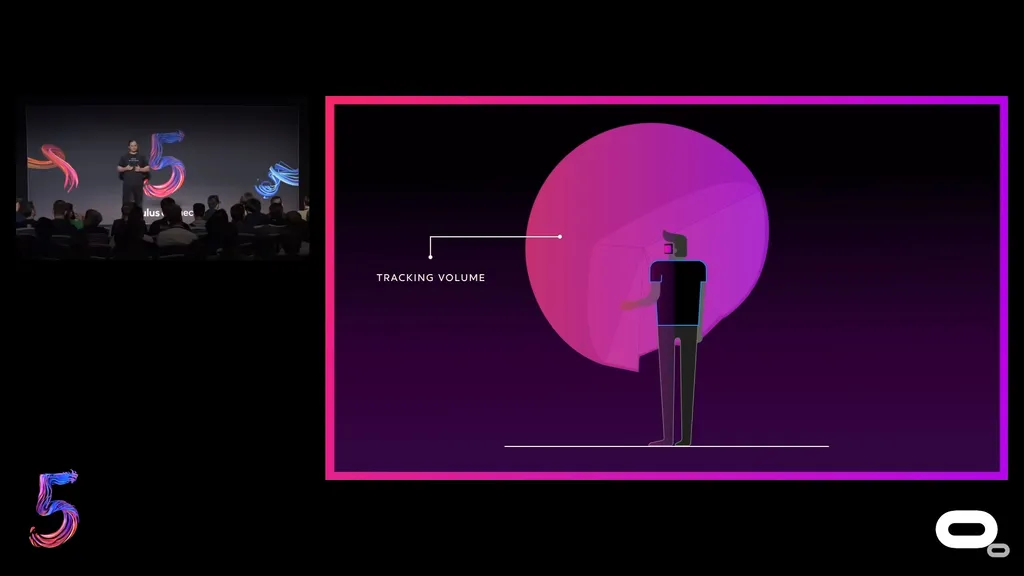Oculus Quest, the latest VR headset from Facebook, enables full six degrees of freedom (6DOF) tracking for both head and hands using the company’s new inside-out system called Insight. This brings the standalone headset closer to Rift-quality tracking than ever before, but it’s still not perfect.
Gabor Szauer, Developer Relations Engineer at the company, spoke a little about the tracking limitations of Quest (and, more specifically, its controllers) at a talk called ‘Porting Your App To Oculus Quest’ at Oculus Connect 5 yesterday. Quest is fitted with four wide-angle sensors at the corners of its front faceplate that deliver a wide field of view (FOV) for your controllers, but they don’t cover the area behind the user and may get lost if you stretch your arms far off to the side. Szauer called for developers to keep this in mind when porting games.
“This doesn’t sound like a big deal but you have to keep in mind that your field of view is not infinite, it’s actually attached to your face,” Szauer explained, showing the above slide that displays the headset’s tracking limitations. “There is some more obvious design considerations like if you’re reaching behind your head to grab something, you’re going to lose your controllers. Those are actually not too bad, if you’re only going to lose your controller tracking for a second or two you can usually fake it pretty easily.”
‘Faking it’ might mean some simple prediction algorithms that will allow you to carry out quick tasks behind you. It’s more of a cheat than anything else, but it’s worked for other inside-out systems like that seen on Windows VR headsets. “But some of the situations you get into aren’t so obvious,” Szauer continued, stretching out his arms to either side to imitate holding guns. “Like, let’s say I have two guns and there is a really, really loud sound coming from my right so I look over. All of a sudden, my left hand just left the field of view.
“For the most part it’s not going to be an issue but it is something to keep in mind.”
Szauer also warned that some interactions that would have users holding one controller over the other could occlude one’s tracking, which is another thing to be aware of.
We won’t really know how much of an issue this could be until we’re using Quest ourselves on a day-to-day basis. The headset’s coming in spring 2019 for $399.


























